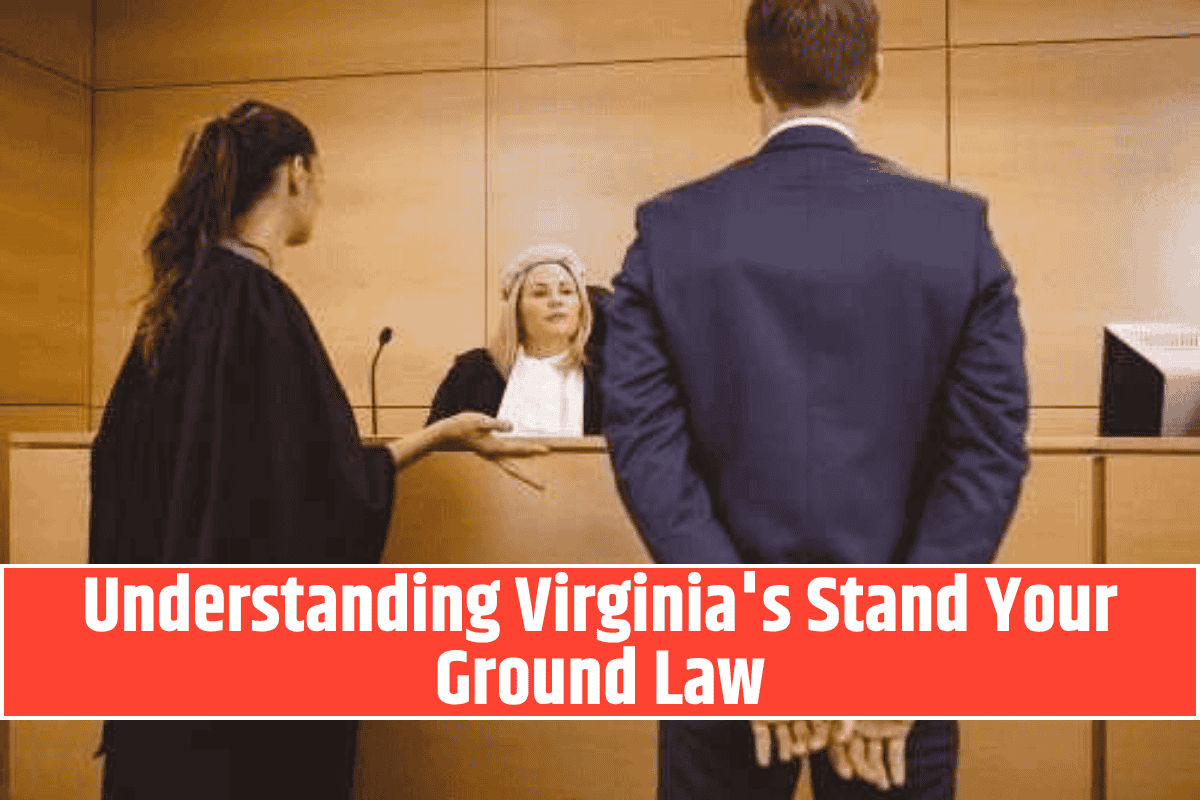In Virginia, the right to self-defense is an important legal principle, and while the state does not have an official “Stand Your Ground” law, its court decisions and rules provide a similar level of protection.
In situations where an individual reasonably believes they are in imminent danger, they may defend themselves without a duty to retreat, similar to states with explicit Stand Your Ground laws.
Does Virginia Have a Stand Your Ground Law?
Although Virginia does not have a specific “Stand Your Ground” law, its courts have ruled that there is no duty to retreat when an individual is confronted with a threat in public. This means that:
If you are not the aggressor and reasonably believe that you are in immediate danger of death or serious bodily harm, you can use force, including deadly force, without first trying to escape the situation.
Virginia follows the no duty to retreat doctrine in practice, even though there is no statute explicitly titled “Stand Your Ground” in its laws.
Key Principles of Self-Defense in Virginia
Justifiable vs. Excusable Self-Defense
In Virginia, self-defense can be classified into two types:
Justifiable Self-Defense: This applies when the individual is completely without fault in starting the incident. There is no obligation to retreat before defending oneself.
Excusable Self-Defense: If the person was at fault for starting the confrontation, they must try to retreat and show a clear intention to avoid further violence before using deadly force.
Legal Requirements for Self-Defense
For self-defense to be legally justified in Virginia, the following conditions must be met:
Reasonable Belief: The person must reasonably believe that force is needed to prevent immediate harm.
Imminent Threat: The danger must be immediate and serious, such as a threat of death or serious injury.
Proportionality: The force used must be reasonable and in proportion to the threat faced.
No Duty to Retreat (for Innocent Parties): If you are not at fault and face an imminent threat, you are not required to retreat before using force in self-defense, even outside your home.
Castle Doctrine
Virginia follows the castle doctrine, which means there is no duty to retreat from an intruder in your home. You have the right to use force, including deadly force, to protect yourself and your property if faced with an immediate threat from an intruder.
When the Duty to Retreat Applies
If you were the initial aggressor, you are required to retreat as far as possible before using deadly force in self-defense.
In situations of mutual combat—where both parties willingly engage in a fight—self-defense claims are typically not allowed.
Summary Table: Self-Defense Laws in Virginia
| Situation | Duty to Retreat? | Use of Deadly Force? |
|---|---|---|
| Not at fault, threatened in public | No | Allowed if imminent serious harm is feared |
| At fault/initial aggressor | Yes, must attempt to retreat | Only if retreating and peace is sought |
| Inside own home (Castle Doctrine) | No | Allowed if facing unlawful entry and threat |
Additional Legal Considerations
Any use of force, whether deadly or not, will be thoroughly investigated by law enforcement. The person claiming self-defense must prove that their actions were legally justified.
Self-defense claims require that the threat was imminent and the force used was reasonable under the circumstances.
Even without a specific “Stand Your Ground” law, Virginia courts have established strong protections for innocent parties who defend themselves under reasonable circumstances.
Virginia allows individuals to stand their ground if they are not at fault and have a reasonable belief that they are facing an imminent threat.
However, individuals who start a conflict must attempt to retreat before claiming self-defense. Understanding these distinctions is vital for anyone considering their self-defense rights in Virginia.
[1] https://www.concealedcarry-ed.com/utah/studyGuide/Understanding-Virginia-s-Self-Defense-Laws/801046_14285/
[2] https://www.tmwilsonlaw.com/criminal-law/self-defense
[3] https://www.dischleylaw.com/blog/2023/july/protecting-your-rights-in-self-defense-cases-vir/












